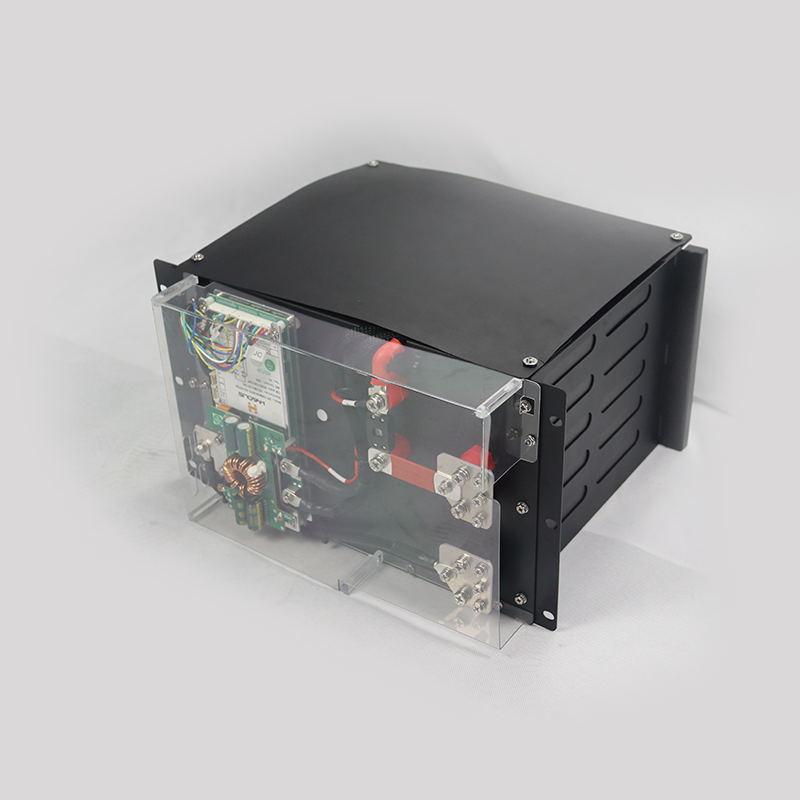Top Features to Look for in Your Marine Lithium Battery Pack
Top Features to Look for in Your Marine Lithium Battery Pack
When it comes to marine applications, the choice of battery can significantly impact your overall experience. Marine lithium battery packs are gaining popularity among boaters due to their lightweight, efficiency, and superior performance compared to traditional lead-acid batteries. Understanding the key features of these batteries can h
2025-09-25

Top Features to Look for in Your Marine Lithium Battery Pack
When it comes to marine applications, the choice of battery can significantly impact your overall experience. Marine lithium battery packs are gaining popularity among boaters due to their lightweight, efficiency, and superior performance compared to traditional lead-acid batteries. Understanding the key features of these batteries can help you make the best choice for your needs.
Understanding Marine Lithium Battery Packs
Before diving into the features, it's important to grasp what marine lithium battery packs are. These batteries are specifically designed to withstand the harsh conditions of marine environments. They offer high energy density, longer lifespans, and faster charging rates, making them ideal for powering various onboard systems, including navigation, lighting, and entertainment.
Why Choose Lithium Batteries for Marine Use?
Choosing lithium batteries for marine applications comes with numerous advantages. Here are a few reasons why they are often preferred over traditional batteries:
- **Longer Lifespan**: Lithium batteries can last up to 10 years or more with proper care.
- **Lightweight Design**: They are significantly lighter than lead-acid batteries, allowing for better weight distribution on your boat.
- **Faster Charging**: Lithium batteries can be charged much quicker, enabling you to spend more time on the water.
- **Higher Depth of Discharge**: They allow deeper discharges without damaging the battery, providing more usable energy.
Key Features to Consider When Selecting Your Marine Lithium Battery Pack
When selecting a marine lithium battery, consider the following features:
1. Capacity and Power Output
The capacity of a battery, measured in amp-hours (Ah), is a critical factor in determining how much energy it can store. A higher capacity means you can run more devices for longer periods without recharging. It's essential to assess your power needs based on the equipment you'll be using onboard.
Calculating Your Power Requirements
To accurately determine your power needs, consider the following steps:
- List all devices you plan to use.
- Note their power consumption in watts.
- Calculate the total watt-hours required for usage duration.
This calculation will guide you in selecting a battery pack with the appropriate capacity.
2. Battery Management System (BMS)
A robust Battery Management System is crucial for safety and performance. The BMS monitors the battery's voltage, temperature, and state of charge. It protects the battery from overcharging, discharging, and overheating, ensuring a longer lifespan and safer operation.
Benefits of an Integrated BMS
- **Enhanced Safety**: Prevents overheating and short circuits.
- **Improved Longevity**: Optimizes charging cycles and extends battery life.
- **Real-Time Monitoring**: Provides valuable data on battery performance.
3. Weight and Form Factor
The weight and form factor of your lithium battery pack are essential considerations, especially in marine applications where space and weight distribution can affect performance. A lighter battery can improve your boat's handling and efficiency.
Choosing the Right Size
It's crucial to ensure the battery fits within the allocated space on your vessel. Measure the dimensions of the compartment where you plan to install the battery and compare them with the specifications provided by the manufacturer.
4. Operating Temperature Range
Marine environments can expose batteries to extreme temperatures. A good marine lithium battery pack should operate effectively across a wide temperature range. Look for batteries that can function well in both high heat and cold conditions, ensuring reliability in various climates.
5. Cycle Life and Warranty
Cycle life refers to the number of complete charge/discharge cycles a battery can undergo before its capacity significantly diminishes. A higher cycle life translates to better value. Additionally, a comprehensive warranty indicates the manufacturer's confidence in their product quality.
Evaluating Warranty Options
Most reputable manufacturers offer warranties ranging from 5 to 10 years. Opt for brands that provide clear terms and conditions regarding warranty claims to ensure peace of mind.
6. Compatibility with Chargers and Inverters
Ensure that your marine lithium battery pack is compatible with existing charging systems and inverters. Some lithium batteries require specific charging voltages and profiles, which might not be compatible with traditional lead-acid chargers.
Upgrading Your Charging System
If your current system isn't compatible, consider investing in a dedicated lithium charger. This investment can enhance charging efficiency and prolong the life of your battery.
7. Protection Against Water Ingress
Given the marine environment, your battery should come with an appropriate IP rating, signifying its resistance to water and moisture. Choose a battery with at least an IP65 rating for optimal protection.
8. Manufacturer Reputation and Support
Choosing a reputable manufacturer is vital. Research customer reviews and testimonies to gauge their experiences with the battery's performance and customer service. A strong support system can be invaluable if you encounter issues down the line.
Advantages of Marine Lithium Batteries Over Lead-Acid Batteries
Understanding the advantages of marine lithium batteries compared to traditional lead-acid batteries can further inform your decision.
1. Efficiency and Energy Density
Lithium batteries provide a higher energy density, meaning they can store more power in a smaller and lighter package, leading to enhanced efficiency.
2. Low Self-Discharge Rate
Lithium batteries have a low self-discharge rate, allowing them to retain their charge for longer periods. This feature is particularly beneficial for boats that are not used frequently.
3. Eco-Friendliness
Lithium batteries are generally considered more environmentally friendly than lead-acid batteries. They contain fewer hazardous materials and are more recyclable.
Maintenance Tips for Your Marine Lithium Battery Pack
While lithium batteries require less maintenance than traditional batteries, following these tips can maximize their lifespan:
1. Regular Monitoring
Monitor the battery's voltage, temperature, and state of charge using the battery management system. Regular checks can help you spot potential issues early.
2. Clean Terminals
Keep the battery terminals clean and free from corrosion. Use a mixture of baking soda and water to clean any buildup.
3. Store Properly
If you're storing your boat for an extended period, ensure the battery is charged to about 50% and kept in a cool, dry place. This practice helps maintain battery health during inactivity.
FAQs About Marine Lithium Battery Packs
1. How long does a marine lithium battery last?
A marine lithium battery can last between 10 to 15 years with proper care and maintenance.
2. Can I use a regular charger for lithium batteries?
No, using a regular charger can damage lithium batteries. Always use a charger specifically designed for lithium technology.
3. What is the best capacity for a marine lithium battery?
The best capacity depends on your power consumption needs. Calculate your total watt-hours required to determine the appropriate capacity.
4. Are marine lithium batteries safe?
Yes, when properly designed and maintained, marine lithium batteries are safe. Look for models with built-in safety features.
5. Do marine lithium batteries require maintenance?
Lithium batteries require minimal maintenance compared to lead-acid batteries, but regular monitoring and terminal cleaning are recommended.
Conclusion
Selecting the right marine lithium battery pack is a crucial decision that can enhance your boating experience. By understanding the essential features such as capacity, BMS, weight, and temperature range, you can make a well-informed choice. Investing in a quality battery will not only improve reliability but also ensure that you enjoy many memorable adventures on the water. Choose wisely, and your marine lithium battery pack will serve you well for years to come.
Key words:
Related News


